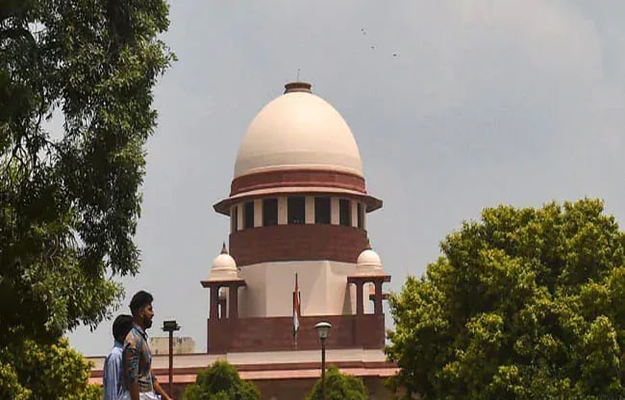Supreme Court Grants Lifeline to Foreign MBBS Students: Allows Final Exams without Enrollment in Indian Medical Colleges and Two Attempts to Pass
The Supreme Court has provided significant relief to MBBS students who had to discontinue their education due to the COVID-19 pandemic and the Russia-Ukraine conflict. As a one-time measure, students are now permitted to take the final year MBBS exams without enrolling in any Indian medical college. Additionally, the Court modified the Centre’s proposal by allowing these students to attempt the MBBS final exams twice, instead of just once.- both Part I and Part II exams (both theory and practical), without enrolling in any existing medical colleges.
Around 18,000 students had come back to India from war-hit Ukraine, with many looking for ways to complete their medical degree in their own country.
In March last year, a petition was filed in the Supreme Court to grant admission to students who had returned from Ukraine to medical colleges in India.
As per the Centre’s guidelines, once these two exams are cleared, students must undertake a compulsory, two-year rotatory internship. The internship will consist of one year of unpaid service, followed by a year of paid service as determined by the National Medical Commission (NMC) for similar previous cases.
A committee established by the Centre has taken the decision to address the concerns of Indian medical students studying in China and Ukraine, who faced uncertainty due to the COVID-19 pandemic and the Russia-Ukraine conflict. The Union Health Minister had earlier rescued these students from the affected regions and was exploring viable options for them to continue their medical education in India.
Numerous discussions took place regarding the situation, and the affected students also filed multiple petitions with the Supreme Court requesting a one-time admission into Indian medical institutes. Despite the NMC initially stating that such accommodation was not feasible, it later expressed no objection to the Academic Mobility Programme for Indian medical students enrolled in Ukraine medical institutes, as long as they met the Screening Test Regulations 2002’s other requirements.
Earlier this year, in January, the Supreme Court instructed the Central Government to find a resolution to the matter. An expert committee headed by the Directorate General of Health Services, which included the National Medical Council (NMC) and relevant Central Ministries, was formed to investigate the matter as per the court’s directions.
Yesterday, on 28th March, the plea of medical students who could not complete their studies overseas was heard by a division bench comprising Justices BR Gavai and Vikram Nath. The students’ collective request was to be included in the Indian medical education system as a humanitarian measure. At the hearing, the Additional Solicitor-General for India, Aishwarya Bhati, disclosed that a committee established by the government had decided to accommodate medical students in their penultimate year who had to return from Ukraine or China and complete their studies through remote means.
The committee’s recommendations were approved by the Centre and included the following:
- The students would be granted a single opportunity to clear both Part I and Part II of the MBBS Final Examinations, which includes both theory and practical components.
- These exams could be taken without being enrolled in any existing Indian medical colleges and must be completed within one year.
- Students would only be eligible to take Part II after passing Part I and waiting for a year to pass.
- The theory exam would be centrally and physically conducted, similar to the Indian MBBS examination.
- The practical exam would be administered by designated government medical colleges with assigned responsibilities.
- Upon clearing both exams, students would be required to complete a two-year-long compulsory rotatory internship.
- The first year of the internship would be free, and the second year would be paid as per the NMC’s decision.
The committee’s recommendations, if accepted by the Centre, would be a one-time measure and not serve as a precedent for future decisions. The Centre relayed this information to the bench, as reported by ANI.
However, senior advocates Nagamuthu and Gopal Sankaranarayanan, along with advocate Shivam Singh, representing the petitioners, expressed their concerns with the proposals. They pointed out the disparities between the syllabus followed in foreign medical institutions and those prescribed by the NMC, and the inadequacy of a single attempt to clear the examination.
The Supreme Court bench, while acknowledging the concerns raised by the petitioners’ counsel, refused to interfere with the decision made by the committee of experts. However, the bench agreed to make a minor modification by allowing such students to have two attempts instead of one to clear the MBBS examination. The court accepted the committee’s report and ordered that the student be offered two chances to pass both Part I and Part II (theory and practical) examinations. The bench clarified that the order is passed only considering the special circumstances of the matter, while disposing of a batch of petitions by repatriated Indian medical students.






















